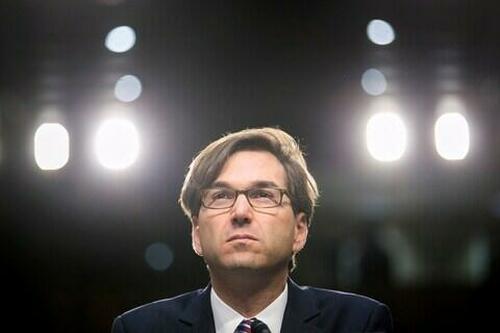Obama’s Chief Economic Advisor Blasts Biden’s “Reckless” Student Debt Bailout
Consider the source…
Jason Furman is an American economist and professor at Harvard University’s John F. Kennedy School of Government and a Senior Fellow at the Peterson Institute for International Economics.
On June 10, 2013, Furman was named by President Barack Obama as chair of the Council of Economic Advisers.
Ok so having explained the “who”, here is the “what”…
Pouring roughly half trillion dollars of gasoline on the inflationary fire that is already burning is reckless. Doing it while going well beyond one campaign promise ($10K of student loan relief) and breaking another (all proposals paid for) is even worse.
— Jason Furman (@jasonfurman) August 24, 2022
Furman’s thread continues…
The White House fact sheet has sympathetic examples about a construction worker making $38K and a married nurse making $77,000 a year.
But then why design a policy that would provide up to $40,000 to a married couple making $249,000? Why include law and business school students?
BTW, those examples also contradict the baseline some have concocted to claim that this won’t raise inflation. The claim it won’t raise inflation is based on the construction worker going from permanently paying $0 interest to paying $31 a month at an annual cost of $372.
You can’t use one baseline (interest payments suspended) to argue this will constrain demand & then a different baseline (interest payments restored) to describe the benefits. That is incoherent, inconsistent & indefensible cherry picking–I hope the White House doesn’t do it.
Also need to be careful with all of the distributional numbers because the beneficiaries will tend to have higher lifetime incomes than current incomes. A 24 year-old making $75,000 is likely to be at a relatively high percentile on a lifetime basis.
There are a number of other highly problematic impacts including encouraging higher tuition in the future, encouraging more borrowing, creating expectations of future debt forgiveness, and more.
Most importantly, everyone else will pay for this either in the form of higher inflation or in higher taxes or lower benefits in the future. I did a thread on this last night but given the new announcement you need to double everything in it.
3 possibilities if transferring $250b to a group:
1. They raise their consumption (now and/or in future). Total output unchanged or rises by less–consumption of others falls.
2. Same but total output rises commensurately–others held harmless.
3. They never raise consumption.
— Jason Furman (@jasonfurman) August 24, 2022
The stimulus is relatively small (a multiplier of ~0.1). So the inflation impact is likely to be about 0.2-0.3pp. That is $150-200 in higher costs for a typical household.
If the stimulus matched what advocates used to argue the inflation would be higher.
1. Biden-Harris can cancel billions of dollars in student loan debt, giving tens of millions of Americans an immediate financial boost and helping to close the racial wealth gap. This is the single most effective executive action available for a massive economic stimulus.
— Elizabeth Warren (@SenWarren) November 12, 2020
That is a relatively small inflation number. But would take about 50-75bp on the fed funds rate to extinguish that much inflation. Is the Fed going to try to offset this? Or will it do what it did with the American Rescue Plan and ignore that rapidly changing fiscal landscape?
Finally, it’s not obvious to me that this is reasonable for a President to do unilaterally. A number of lawyers (and political leaders) have argued inconsistent with the law. Even if technically legal I don’t like this amount of unilateral Presidential power.
We look forward to hearing Biden’s chief economic adviser Jared Bernstein’s arguments ‘for’ the vote-buying bailout… once again, consider the source.
Tyler Durden
Thu, 08/25/2022 – 10:05

